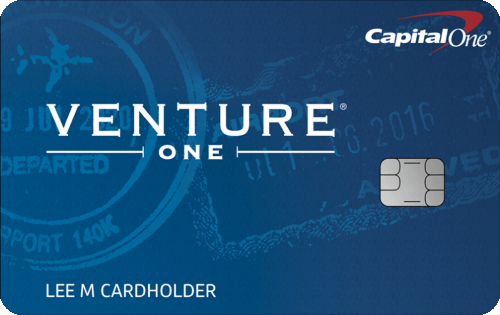
|
|
You might be using an unsupported or outdated browser. To get the best possible experience please use the latest version of Chrome, Firefox, Safari, or Microsoft Edge to view this website. |

Certificate of Deposit loving savers got a little relief in 2018 as the Federal Reserve raised interest rates from their near historic loves. But the last of those hikes came in December and in this past March, most of the the Fed’s members said they saw no increase in rates at all for 2019. (That was a surprise, given that as recently as last December, multiple hikes in 2019 were considered likely.)

At current interest rates, CDs won’t make you rich. But if you can grab the best CD rates on offer, you should be able to keep your money safely growing at near (or even with) the inflation rate. In other words, your savings shouldn’t be losing value.
Online banks are aiming to steal as much business as they can and will offer higher rates to meet that goal. It’s not just online banks that may be offering a competitive rate. Regional banks and credit unions are also competing for your banking dollars and will offer enticing rates on CDs.
 Where to get the best rate on a CD depends, which is why it behooves you to shop around. Big banks tend to be misers when it comes to deposit rates. They don’t need your business as bad as the online banks and aren’t as quick to raise rates after the Federal Reserve makes a move.
Where to get the best rate on a CD depends, which is why it behooves you to shop around. Big banks tend to be misers when it comes to deposit rates. They don’t need your business as bad as the online banks and aren’t as quick to raise rates after the Federal Reserve makes a move.
Ultimately you want to go with the bank that offers the highest rates in an FDIC insured account. That means depositors are protected up to $250,000 if the bank goes under. Credit unions are insured up to the same amount by the National Credit Union Share Insurance Fund. Look at the APY when comparison shopping. Otherwise known as the annual percentage yield, APY gives you the percentage you’ll earn on your investment after one year on a compounding basis.
When it comes to CDs you have options. Certificates of deposit come in different maturities ranging on average from one to five years, though some offer shorter and longer terms. Rule of thumb: the longer your money is locked up in a CD, the higher the APY. But you do pay for that higher fixed return. Should the Federal Reserve resume raising interest rates, you could miss out on a better-paying savings vehicle. There are also penalties involved if you withdraw money from your CD early.
of deposit come in different maturities ranging on average from one to five years, though some offer shorter and longer terms. Rule of thumb: the longer your money is locked up in a CD, the higher the APY. But you do pay for that higher fixed return. Should the Federal Reserve resume raising interest rates, you could miss out on a better-paying savings vehicle. There are also penalties involved if you withdraw money from your CD early.
One Year CDs
For those looking for a short-term way to save money for say a down payment on a home, a one-year CD is a good option. The current national average APY on a one-year CD stands at 0.66% as of April 8, 2019, according to the FDIC. Fortunately, you can do a lot better than average.
Here is a list of some of the top 1-year CD rates:
| Bank | CD Product | APY | Minimum Deposit | Type |
| USALLIANCE Financial | 1 Year | 2.50% | $500 | Credit Union |
| VirtualBank | 1 Year | 2.55% | $10,000 |
Online Only |
| North American Savings Bank | 1 Year | 2.84%* | $1,000 | Regional Bank |
| Bank Purely | 1 Year | 2.65% | $1,000 | Online Only |
| United Texas Bank | 1 Year | 2.75% | $1,000 | Regional Bank |
| Sallie Mae Bank | 1 Year | 2.75% | $2,500 | Regional Bank |
| Communitywide Federal Credit Union | 1 Year | 2.55% | $2,000 | Credit Union |
| LimeLight Bank | 1 Year | 2.85% | $1,000 | Online Only |
| Alliant Credit Union | 12-17 Months | 2.70% | $1,000 | Credit Union |
*For accounts opened online only.
5-Year CDs

Five year CDs offer higher yields. They also require you to lock up your money longer. Locking up your money for 60 months could mean you’ll miss out on opportunities to see your savings grow at a faster rate. If preservation of the buying power of your savings is the name of the game for you, however, the five-year CD can be a good tool.
A five-year CD is particularly attractive to individuals that care most about protecting their money and have nearly no tolerance for volatility. They get peace of mind knowing their savings will be protected and gain some yield along the way.

When it comes to shopping for a five-year CD, getting the best rate possible is critical. The national average rate on a five- year CD stands at 1.28% APY.
Here are some of the best rates available today on 5-year CDs.
| Bank | CD Product | APY | Minimum Deposit | Type |
| United States Senate Federal Credit Union | 5 Years | 2.98% to 3.11% | $20,000-$59,999 for 3.05% APY;
Under $20,000 for 2.98% APY |
Credit Union |
| KS State Bank | 5 Years | 2.82% | $500 | Regional Bank |
| PenFed Credit Union | 5 Years | 2.90% | $1,000 | Credit Union |
| The Federal Savings Bank | 5 Years | 3.20% | $10,000 | Regional Bank |
| Popular Direct | 5 Years | 3.00% | $10,000 | Online |
| Vio Bank | 5 Years | 2.79% | $500 | Online |
| VirtualBank | 5 Years | 2.50% | $10,000 | Online |
| Synchrony Bank | 5 Years | 3.10% | $2,000 | Online |
Keep in mind that rates and terms can change daily.
Laddering CDs
Longer term CDs pay higher yields. They also require you to lock up your money for an extended period of time. One way to get the best of both worlds is to engage in a CD laddering strategy. That occurs when savers spreads their money out across different CDs with varying terms. A portion of the money goes toward short-term CDs, while another portion of the funds is allocated to longer-term CDS.
As one of the CDs matures, the money is reinvested in a new five year CD. Eventually, you will have a five year CD maturing each year. That will enable you to have some access to your money and at the same time keep it in a higher-yielding savings vehicle.
CDs aren’t going to give you a double-digit return, but you can get a higher rate if you are willing to shop around. Thanks to the increased competition in the marketplace, consumers have a lot of options both from traditional banks and their online brethren. Banks of all kinds want your business and will pay for it with attractive returns, making comparison shopping non- negotiable when purchasing a CD.




